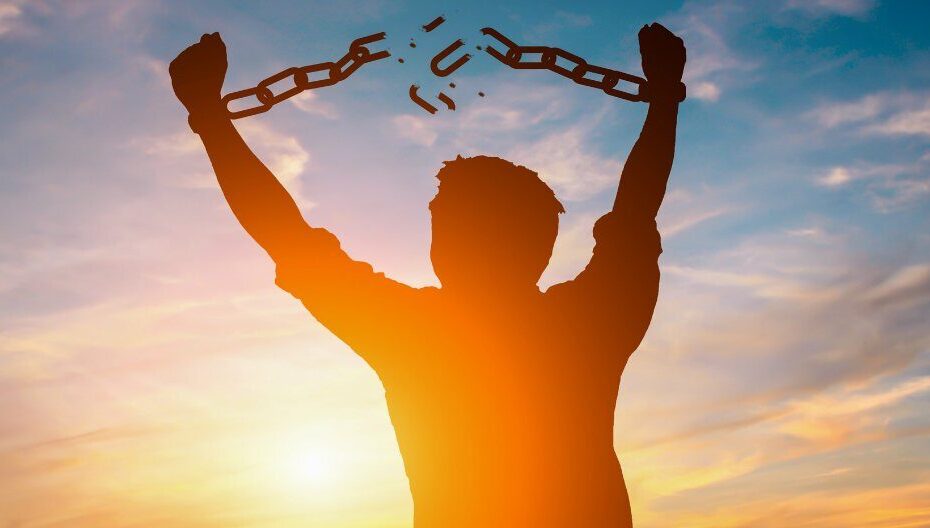There are people you know, perhaps even in your family, who are hurting and need your help. The good news is that there are things that they—and you—can do to not only improve their life, but to prevent more problems from coming along in the future. They can learn to live life better!
As mysterious as this may sound, what may seem to be their most painful trials could lead to some of their biggest breakthroughs. They may discover the life they are meant to have, and become the person they are designed to be, not in spite of their struggles, but because of them!
They are not alone, because there is a new normal in society today, and more people are hurting than ever before. At some point in our lives, virtually all of us struggle with emotional chains which hold us prisoner and keep us from enjoying life to the fullest. Here is just a glimpse of the nature of the problem:
- The National Institutes of Health says about 1 in 4 American adults suffers from a mental disorder in any given year, and about 46 percent will sometime in their life.
- The US Surgeon General stated that 1 in 7 people will struggle with substance abuse—perhaps twice that number have at-risk behaviors—and 90% of them will not get help.
- According to Gallup, the effects of substance abuse are felt by around half of all American families.
As horrendous as those numbers seem, they are only the tip of the iceberg, because the overall problem is much broader and deeper than that. Because we all have “CHAINS,” which are harmful behaviors we repeat over and over and find hard to stop. That word “CHAINS” is an acronym which stands for:
- Compulsive Habits
- Addictions and Idols
- Negative Self-talk
The progression of those worsening conditions often works this way: We have harmful thought patterns which disrupt the happy, healthy workings of our brain. Those unhealthy thoughts often create negative self-talk, which leads us toward compulsive habits we use to feel better, which can turn into idols and addictions.
Some examples of what we are talking about include:
- Negative self-talk: “I’m not good enough, everything is going wrong, things are hopeless.”
- Compulsive habits: Anxiety, eating, people pleasing, TV, internet, control, anger, work.
- Idols: Anything we turn to instead of God to help us deal with the ups and downs of life.
- Addictions: Smoking, drinking, pills and other drugs, pornography, gambling, spending.
The good news is that there are things we can do to recover from, lessen, and prevent those issues. There is more good news in that the steps we take to prevent addictions and other issues also help us find more peace and joy in our lives, and those same steps can be used to help other people as well.
We can learn to deal with our issues and trials early and prevent bad habits. We can break our CHAINS!

What CHAINS Are Like
Most of my family knows too well what the imprisonment of CHAINS feels like. There are many types of trials people suffer through, but the self-destructive downward spiral into addiction is one of the worst.
After we moved to a new city, my older son started in a middle school with kids who had known each other since kindergarten. Trying to find his place, he battled negative self-talk and began using alcohol, and then drugs, to fit in. The compulsive nature of what he was doing got worse, leading to increasingly dangerous behavior. He felt lost, and my wife and I became frustrated and terribly, desperately scared.
Meanwhile, my wife’s earlier bouts of depression led to relentless inner voices of hopelessness and loneliness, which deepened her sadness even more. She increasingly used alcohol to escape from those feelings for a while, but it inevitably delivered her right back into the prison of depression.
For me, the cycle of unhealthy thinking, feeling, and acting sometimes worked like this:
- Negative self-talk: “That was stupid. You don’t know what you’re doing, and everybody can tell.”
- Compulsive habit: “I’ll eat to feel better and watch some mindless television to numb how I feel.”
- Addictions and idols: “I deserve to feel better. Drinking doesn’t hurt anybody else, so why not?”
- Negative self-talk: “Now, everything is going wrong. I’m scared, and I don’t know what to do.”
But my family also knows that CHAINS can be broken, and hope restored. We know, because it happened with us. And with hundreds of people that we know. Which is why we know that it can happen with you.
The Epiphany of Prevention
In this section on “Prevention,” please hear these important thoughts: CHAINS can be broken, and people can learn to live life better, but it is far easier and less painful to prevent issues rather than suffer through them for years before “hitting bottom” and then going through a long period of recovery.
As my family struggled through our tough times, we found ourselves involved in recovery in a number of different ways: (a) I attended Celebrate Recovery meetings; (b) my wife became active in Alcoholics Anonymous; (c) our son was in many programs including residential recovery twice; and (d) we also utilized therapists, psychiatrists, pastors, family counseling, peer groups and mentors, and other forms of recovery. There were no magic answers, but all of those resources were helpful in some way.
As I was going through recovery, I learned some things that changed the course of my life and led to why I am sitting here now writing this to you. I came to understand 3 critical points:
- Recovery works – It has worked for many millions of people all over the world for decades.
- Recovery includes spirituality – Most programs recognize the need for connection to a “higher power” including the Twelve Steps first made famous by AA. Those steps are biblical in nature due to who wrote them and how, and much biblical wisdom is wrapped up in recovery.
- Recovery is an effective lifestyle – The emotional, spiritual, and personal principles in recovery work for far more than dealing with compulsive substances or behaviors; they are a way of living! Recovery offers practical advice that leads to more peace, joy, and purpose in our lives.
That understanding led me to a question which became an epiphany: “Why do we wait until people ‘crash and burn’ and then have them go through a long recovery? Why don’t we teach these principles to everybody, and why don’t we do that earlier in the cycle in order to prevent addiction?”
That epiphany led me to spend several years researching and writing the book STEPS: A Daily Journey to a Better Life. Which inspired me to continue studying and blogging on how people can improve their lives, grow closer to God, and prevent addiction (at the same time!) Which eventually led me to leave the business world (I was with IBM for 38 years) and found STEPS Ministries. Which, several years later, led to our work to research, synthesize, and communicate this way of living called “Next Right STEPS.”
Next Right STEPS is a movement to bring help, healing, and hope to hurting people, including those who struggle with addiction or care for someone who does. Our mission is to proactively HELP through proven and practical training, facilitate grace-oriented HEALING, and change people, families, and organizations through life-transforming HOPE.
In other words, helping people improve their lives and prevent addiction and related issues is now not only a life calling for me personally, but it is also the mission of our STEPS organization.
We pursue that mission by researching what subject matter experts say in areas including psychology, wellness, recovery, the Bible, philosophy, neuroscience, and personal development. Then, we synthesize and integrate their suggested best practices into easy-to-understand content for people to use.
Question: Do you have any negative self-talk, compulsive habits, idols, or addictions?
Next Right Step: Make sure that you read all 3 parts of this article on breaking CHAINS.

